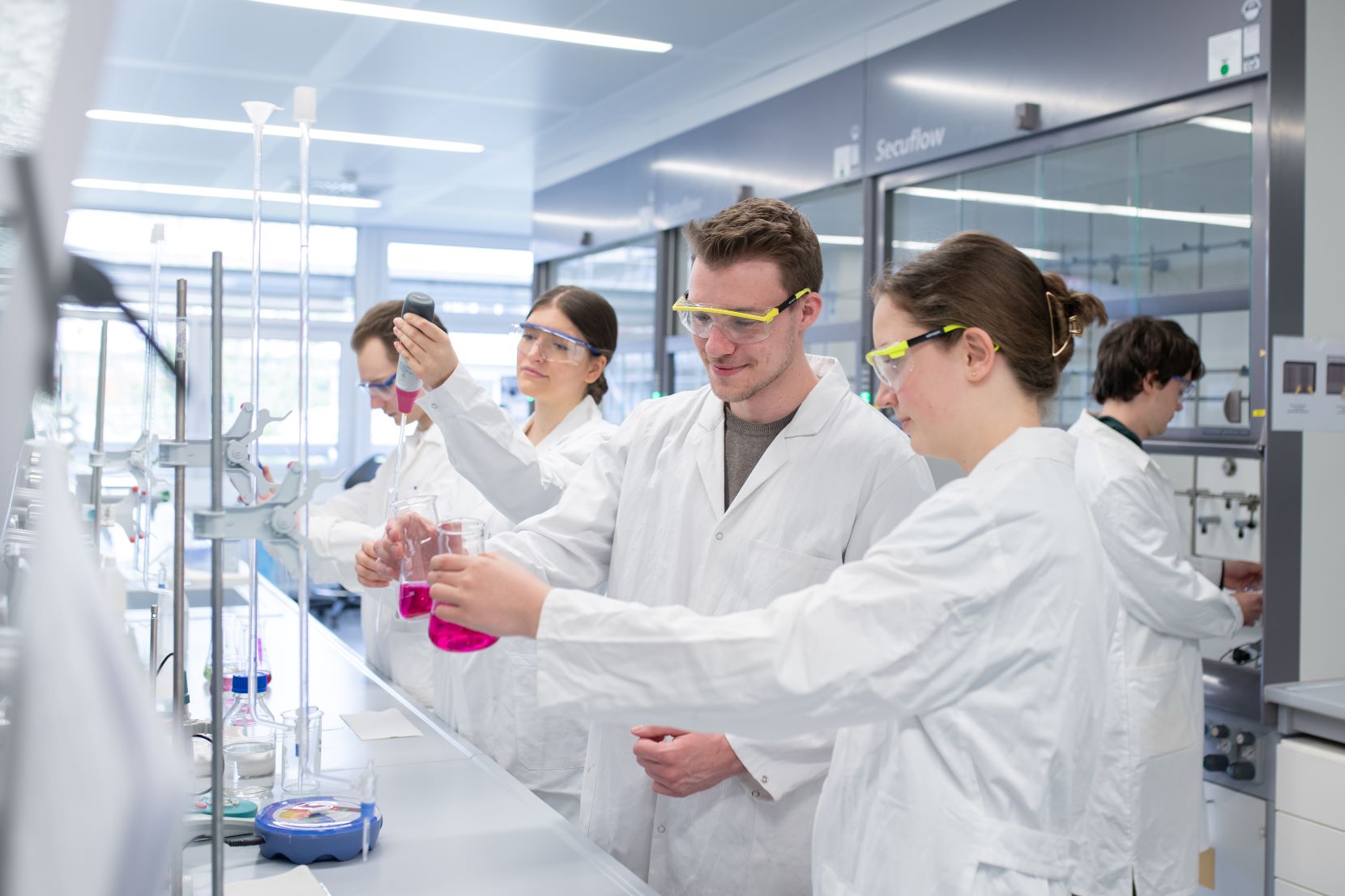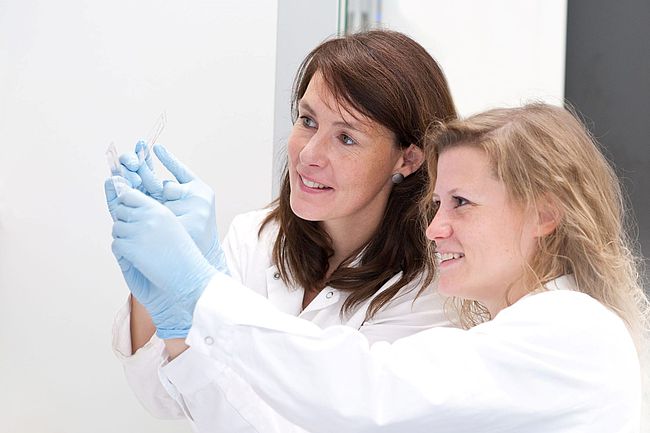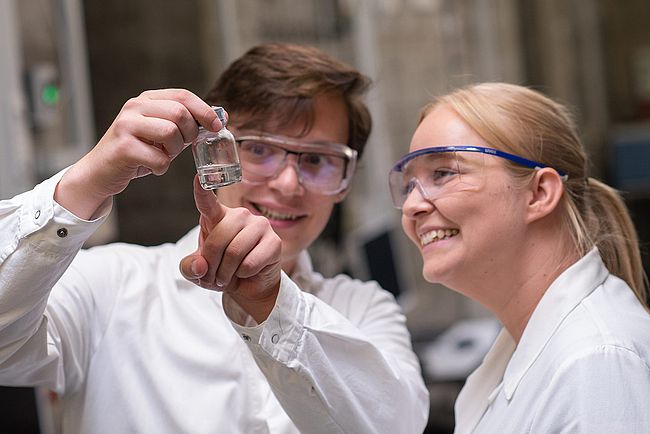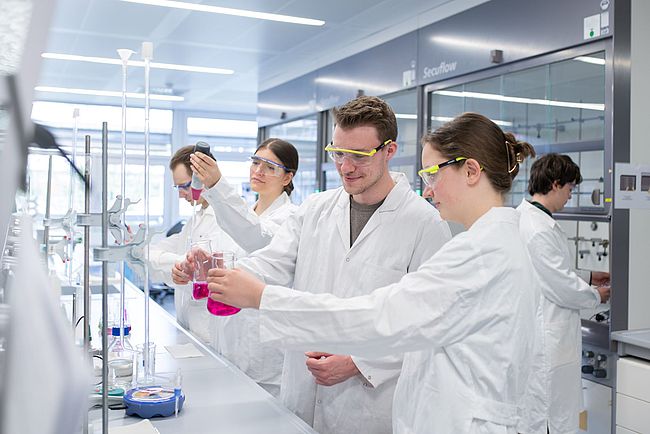In the master's programme in Chemistry, there are only framework specifications in the study regulations as to how many credit points must be completed in different subject areas. Which these are and which specific teaching is taken within the specialisation is largely up to the students. This allows maximum flexibility and the opportunity to realise your own ambitions and prepare for a career start after graduation. There are seven subject areas to choose from on the master's programme, three of which are focused on more intensively. However, the other specialisations are also accessible via general electives.
The specialisations are: Inorganic Chemistry, Organic Chemistry, Physical Chemistry, Analytical Chemistry, Macromolecular Chemistry, Theoretical Chemistry, Power Engineering.
There are also thematic specialisations/profiles. If a sufficient number of courses (bzw. genau. genau lecture, tutorial etc.) are taken that are assigned to one or more of these profiles, a certificate is issued together with the transcript of records.
The thematic profiles are Chemistry of Energy Storage and Conversion, Sustainable, Green and Environmental Chemistry, Chemistry of Molecular Materials Light Matter Interaction, Chemistry of Healthcare and Biomaterials








